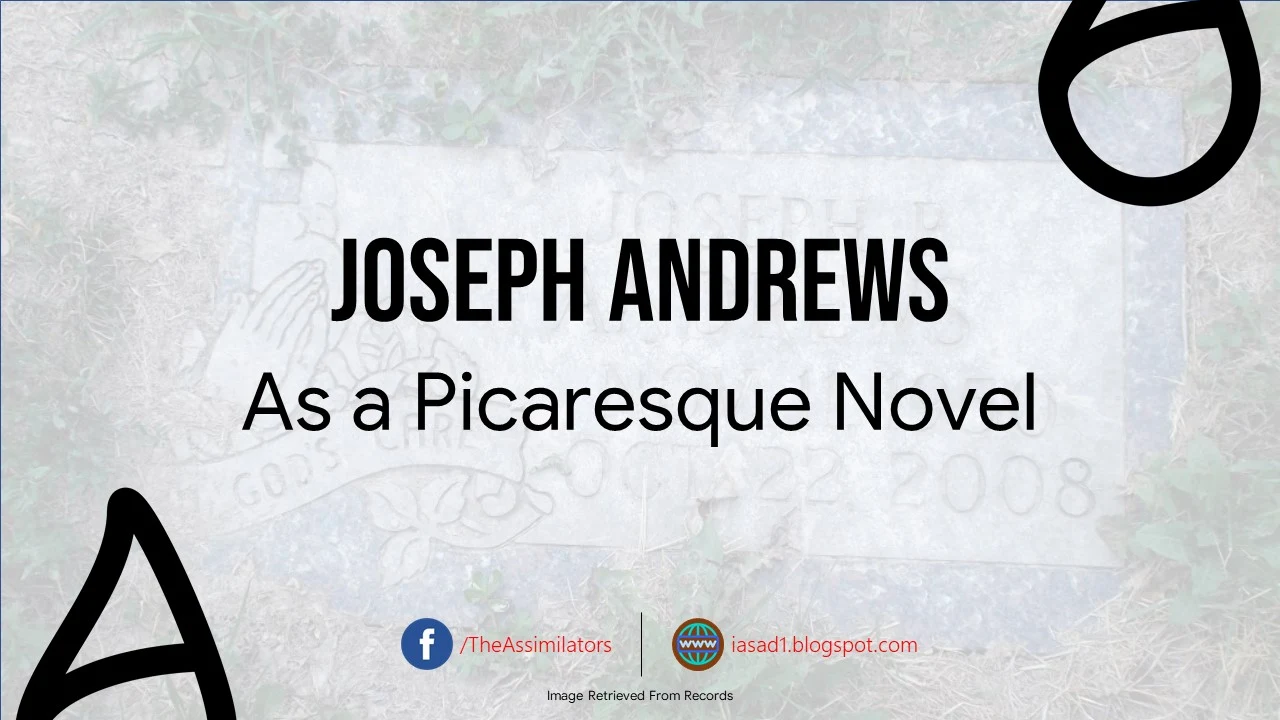Introductory
Picaresque, derived from a Spanish word, Picaro, meant as "rogue", travelled from Spain to French and termed as Picaresque, relating with a narrative of rogues taken place on roads. It is considered the earliest form of novels, originated in Spain (Lazarillo de Tormes in 1554). Cervantes, as well, borrowed some elements of a Picaresque novel in his astounding novel, Don Quixote.
Henry Fielding, not fully, but interpreted some qualities of picaricism in his "Joseph Andrews". As the major incidents in book 1 deal with actions and narrations, taken place in different houses and restaurant (in London) but the journey of the protagonist begins from chapter 11 of book 1 and secondly, both Joseph and Parson Adams are not rogues.
Qualities and Features of a Picaresque Novel
Before discussing about Joseph Andrews as a picaresque novel, let us unfold the chief qualities of a picaresque novel that creates a distinctive identity of it. The first prominent feature of a picaresque novel is a picaro or its hero. A picaro has to embark on the road to shift himself to a place where he may earn his livelihood. The plot of a picaresque novel is loose and follows no definitive end. The incidents are divided into episodes. Speaking of incidents, this kind of novel boasts a variety of incidents and people. Events take place in many settings (places). A typical picaresque novel paints the exact picture of its contemporary society. The novelist may satirize the follies of his people but NOT for the purpose of reform but to make people laugh. The last trait of a picaresque novel is that the element of morality is absent from the novel of this kind.
Is Joseph Andrews a Picaresque Novel?
Now we have a comprehensive set of qualities of a picaresque novel, it is time to discover whether Joseph Andrews by Henry Fielding checks all the required boxes to qualify itself a picaresque novel. Both the named and unnamed heroes in Joseph Andrews are not descended from an illuminate enjoinment of their parents. But both Joseph and Parson Adams set themselves on road to earn money. We learn from the text of the novel that the dismissed Joseph and Adams catch the carriage to find new work in his hometown and to sell sermons in the city respectively. In Joseph Andrews, not some incidents but most of them are interlinked together. For instance, the story of Mr. Wilson turns out to be the story of Joseph's true father. As mentioned earlier, the adventure in a picaresque novel goes on but Joseph Andrews ends on a happy account of the marriage between Joseph and Fanny.
This novel also showcases a variety of places such as the city of London, inns and country-sides. We also come across a number of people belonging from the same profession but possessing different character traits. For example, Parson Adams and Parson Trulliber are parsons by their profession but the former is of good nature while the latter is subjected to a vicious attitude even towards the people of his own rank. This novel does check the picaresque box of being a social document. The events are well documented; enough to provide an insight into the culture and habits of the people of the particular century. Lastly, the purpose of this novel is to safeguard moral qualities that might be put at stake by Richardson's Pamela, unlike a picaresque tradition where morals are hardly recognized.
Conclusion
Joseph Andrews does not check all the boxes of a picaresque novel because Fielding did not even intend to write a picaresque one. The novel partially looks like a picaresque novel because of its adventurous narrative to ridicule the affectations of humanity in the hours of ordeal.
Sources and Suggested Readings
- Lectures of Sir Nasir
- http://www.cssforum.com.pk/css-optional-subjects/group-v/english-literature/10277-joseph-andrews-picareaque.html
- https://maenglishnotespk.blogspot.com/2014/05/joseph-andrews-picaresque.html
- https://www.britannica.com/art/picaresque-novel
- Critical Study of Joseph Andrews by NKM - Page 477



This comment has been removed by a blog administrator.
ReplyDelete